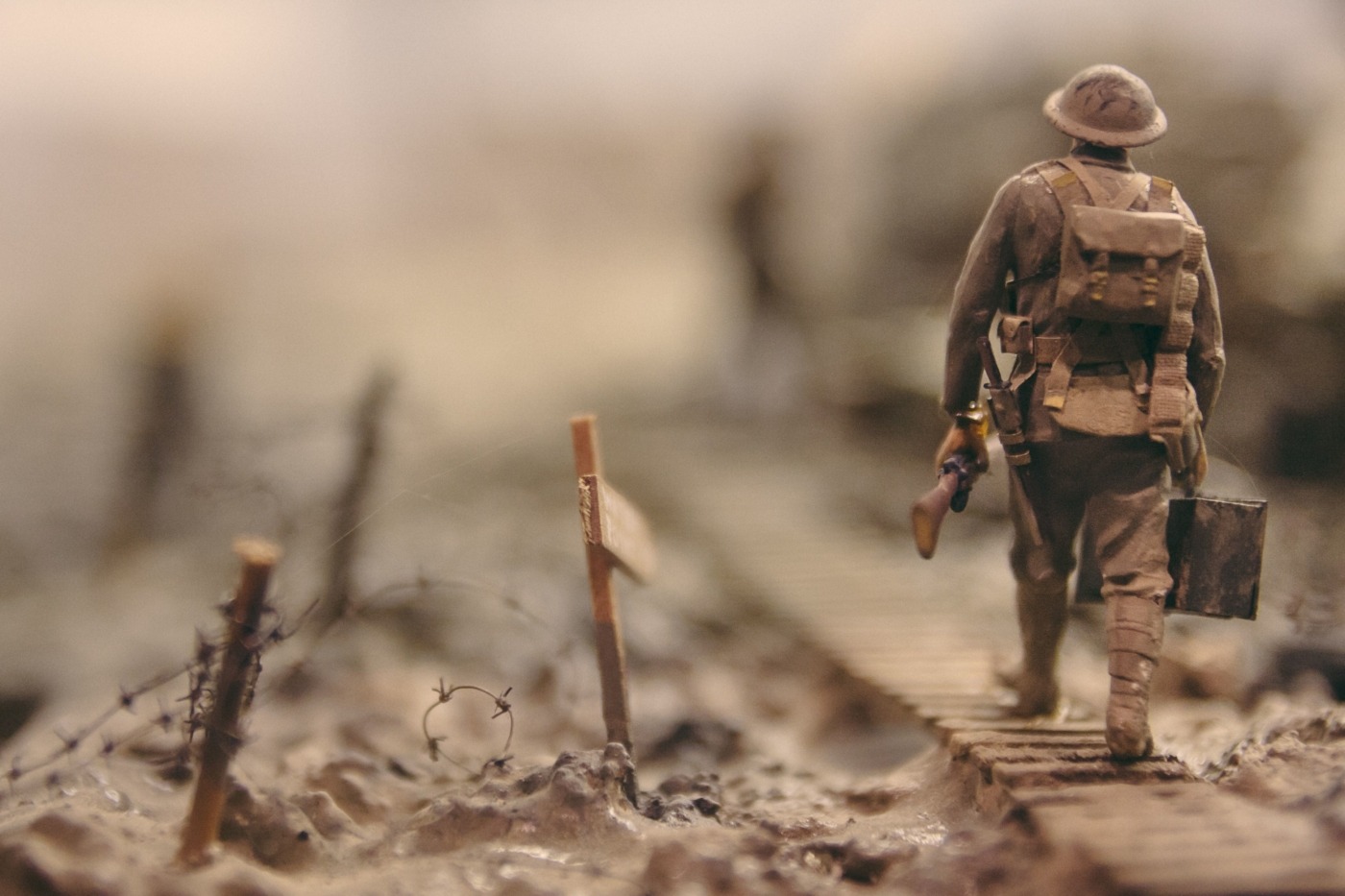Best war poetry to commemorate 100 years since the end of the First World War
Written in 2000, Kate Clanchy’s ‘War Poetry’ begins: ‘The class has dropped its books. The janitor’s/disturbed some wasps, broomed the nest/straight off the roof.’
The enduring power of poetry lies in its way of persistently maintaining significance regardless of when it was written. Some poetry insists upon having something to say that is timeless, attuned to what it is to be human on a level which is not attached to this-or-that time period alone. Nowhere is this more true than at the crossroads between poetry and the subject of war, the latter being so charged with emotional horror and human suffering. The centenary year of World War One approaches and brings in its wake the looming spectre of mass conflict, which we are reminded is still very much present today.
This is the message war poetry so often tends towards – that war is not to be glorified, but is repugnant
Clanchy’s poem taps into the way that many of us, for whom war and conflict exist fortunately as mere concepts and having no attachment to a real, concrete experience, sit idly. The poem, as previously mentioned, begins with lines that explicitly introduce the setting of a classroom – a setting with which we are all very familiar – with a janitor dismantling a wasp’s nest. While in poetry a setting can often act as the metaphor beneath which the reader is allowed to imagine freely, imposing their own subjective reading onto the poem, Clanchy’s title ‘War Poetry’ leaves us under no allusions as to how she intends the poem to be read.
This is no opportunity for the imagination to float freely through poetic metaphor, but rather a pointed, unidirectional work that states with stark necessity the nature of its subject matter from the outset. And so it progresses, this unearthed classroom-metaphor, with the wasp’s nest described as an exotic, fallen planet. This all alludes, as denoted by the inescapably contextualising title, to the devastation wrought at the hands of the higher powers that make the political decisions to these horrific ends – the class dropped its books in awestruck horror as the janitor (a figure of authority in such matters) attends to the destruction of this fallen planet, the class powerless to act but yet engaged in silent spectatorship. This is the message war poetry so often tends towards – that war is not to be glorified, but is repugnant.
We are left with sobering lines so the class do not jump to action as their books clatter to the desks
And we can imagine the cacophonous thud of heavy books clattering to the desks in the room, signifying the beginning of a cold, long silence as the class watches this ‘war’ unfold. The mood here is akin to that which arises in Yeats’ infamous ‘Easter 1916’ with his ‘polite meaningless words’, which offers a similarly sobering account of the reminder that during times of conflict, the natural reaction for many is one of being stunned into silence and inactivity. We are reminded by poetry that in instances of war, horror and anguish are the primary emotions to which we become the bearers.
But the real power of Clanchy’s poem lies in its final stanza, which is filled with the ineffable truth that is a modern parallel to Wilfred Owen’s ‘Dulce et decorum est’. In turn Clanchy remarks upon how the class sit with shaven heads and empty promises that they would enlist for the army willingly should the occasion of war arise – the poet here reminding us that war is all too often glorified, and those naive to its all-encompassing horror can unwittingly become willing victims of the ‘old Lie’. We are left with sobering lines so the class do not jump to action as their books clatter to the desks. Their collective gazed focused upon the horrors perpetrated against the wasps’ nest behind the glass – instead they spectate – for though the concepts of war and conflict are horrific enough, their reality is something unprecedentedly worse. This is the image that poetry of war captures to great effect, and Clanchy’s poem leaves us with a sobered perspective, a warning of the horrors that war inevitably brings.

Comments
Comments are closed here.